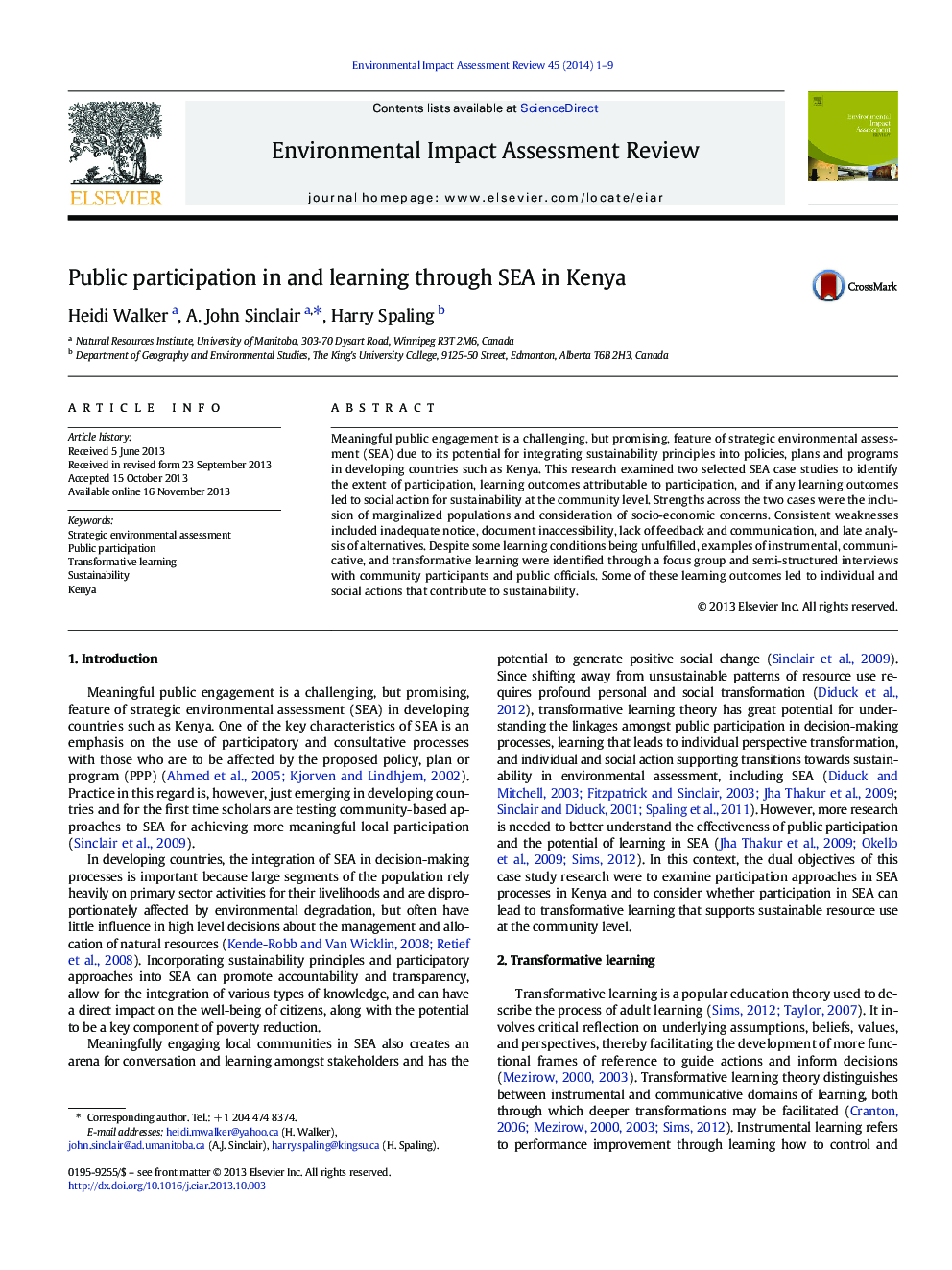| Article ID | Journal | Published Year | Pages | File Type |
|---|---|---|---|---|
| 1052725 | Environmental Impact Assessment Review | 2014 | 9 Pages |
•The strengths and weaknesses of Kenyan SEA public participation processes were identified.•Multiple deficiencies in the SEA process likely frustrate meaningful public engagement.•Participant learning was observed despite process weaknesses.•Participant learning can lead to action for sustainability at the community level.
Meaningful public engagement is a challenging, but promising, feature of strategic environmental assessment (SEA) due to its potential for integrating sustainability principles into policies, plans and programs in developing countries such as Kenya. This research examined two selected SEA case studies to identify the extent of participation, learning outcomes attributable to participation, and if any learning outcomes led to social action for sustainability at the community level. Strengths across the two cases were the inclusion of marginalized populations and consideration of socio-economic concerns. Consistent weaknesses included inadequate notice, document inaccessibility, lack of feedback and communication, and late analysis of alternatives. Despite some learning conditions being unfulfilled, examples of instrumental, communicative, and transformative learning were identified through a focus group and semi-structured interviews with community participants and public officials. Some of these learning outcomes led to individual and social actions that contribute to sustainability.
